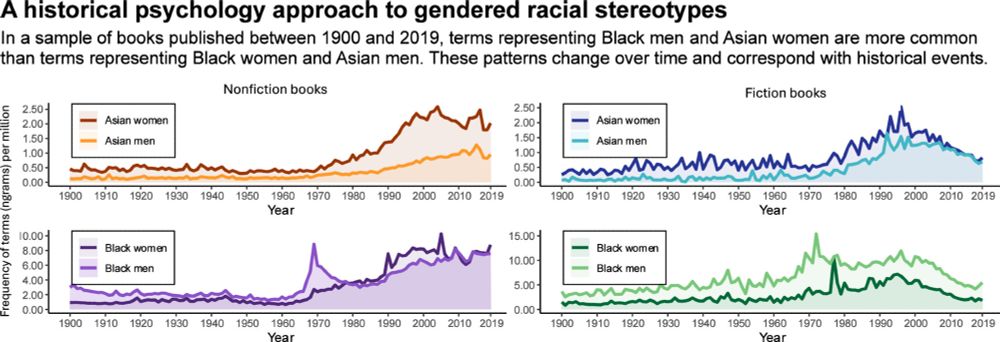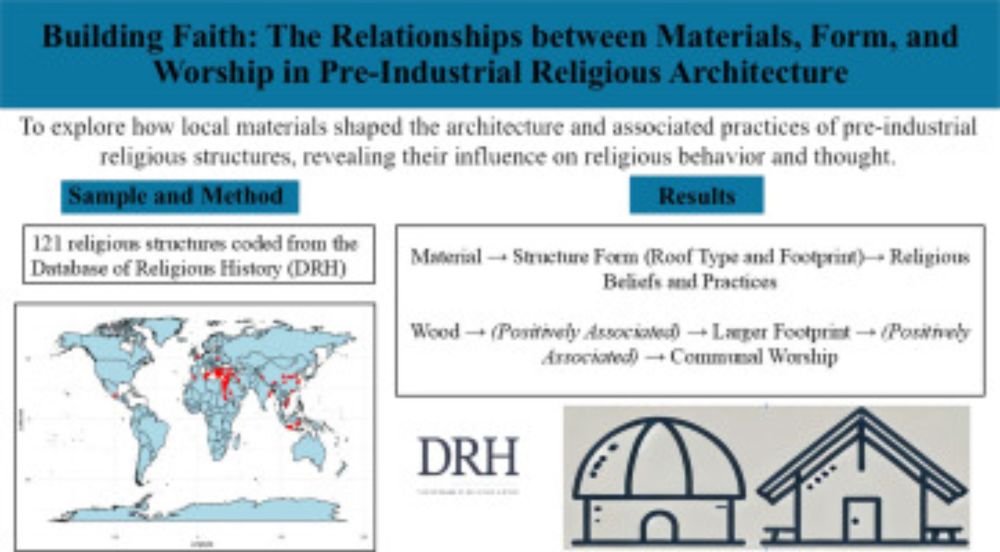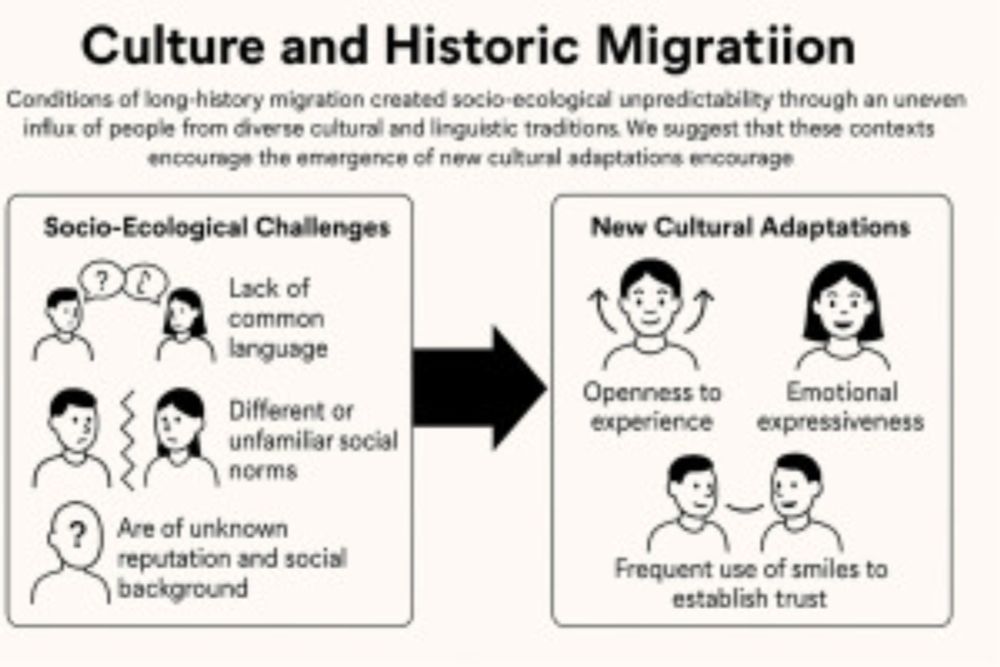

For folks interested in learning about our lab's research, check out this flier with all our presentations at this coming #SPSP2026 conference @spspnews.bsky.social. With research by several rising stars covering tech, culture, politics and more
Credit to our talented lab manager Hanying Yao!
21.02.2026 23:38 — 👍 9 🔁 4 💬 0 📌 0

Thrilled to share our latest paper, out now in Science Advances! We explored the development of cooperative behaviors — fairness, trustworthiness, forgiveness, & honesty — across five societies, culturally contextualizing them & seeing how they correlate. (1/5) www.science.org/doi/full/10....
07.02.2026 15:09 — 👍 126 🔁 44 💬 1 📌 3

We're excited to announce the first Mind & Machine Alignment Summit at Ohio State!
Join leaders from social science and the AI industry to advance AI that promotes well-being and aligns with human values. Learn about emerging work and connect with leading researchers and builders.
02.02.2026 22:05 — 👍 3 🔁 1 💬 1 📌 0

Before the end of this year, I’m glad to share a short perspective/policy piece, recently out with @joshcjackson.bsky.social , Zhao Wang, and @williambrady.bsky.social: “Large AI Models Have a Prioritization Problem: Policy Implications and Solutions.”
31.12.2025 06:08 — 👍 6 🔁 3 💬 2 📌 0

Postdoctoral Researcher Positions!
12.11.2025 13:23 — 👍 24 🔁 22 💬 1 📌 0

Chart showing change in the use of online platforms. Over the past few years, four of them have grown in overall use among U.S. adults – TikTok, Instagram, WhatsApp and Reddit. TikTok: 37% of U.S. adults report using the platform, which is slightly up from last year and up from 21% in 2021. Instagram: Half of U.S. adults now report using it, which is on par with last year but up from 40% in 2021. WhatsApp and Reddit: About a third say they use WhatsApp, up from 23% in 2021. And 26% today report using Reddit, compared with 18% four years ago. While YouTube and Facebook continue to sit at the top, the shares of Americans who report using them have remained relatively stable in recent years.
UPDATE: Americans who use
YouTube 84%
Facebook 71%
Instagram 50%
TikTok 37%
WhatsApp 32%
Reddit 26%
Snapchat 25%
X (Twitter) 21%
Threads 8%
Bluesky 4%
Truth Social 3%
Full Pew Research Center report: https://www.pewresearch.org/internet/2025/11/20/americans-social-media-use-2025/
23.11.2025 21:55 — 👍 196 🔁 108 💬 24 📌 48


Americans are growing more socially isolated and politically divided.
Our new paper in Applied Network Science suggests these two forms of disconnection may be linked. People with denser, more connected social networks often feel less partisan animosity.
🧵
13.11.2025 17:57 — 👍 23 🔁 11 💬 2 📌 1
Only 2 days left to get your abstracts in!
14.11.2025 01:14 — 👍 11 🔁 7 💬 1 📌 0

Thank you to @joshcjackson.bsky.social and Dan Medvedev for a fascinating recent lab presentation on how attitudes toward the rich vary globally! Innovative methods and fascinating findings, all around. @robbwiller.bsky.social
11.11.2025 22:19 — 👍 6 🔁 3 💬 0 📌 0

What happens when we model the detective archetype at scale? 🕵️♂️📚
Our new paper, accepted for #CHR2025 combines literary history and computational modeling to trace how the figure of the detective evolves across 150 years of French fiction.
arxiv.org/pdf/2511.00627
04.11.2025 17:36 — 👍 23 🔁 10 💬 3 📌 0

And last but not least, Obshonka and colleagues find that Roman rule explains puzzling variation in modern well-being differences across Germany
Ancient Roman investment in infrastructure may explain why Southwestern Germans are so happy and healthy today
www.sciencedirect.com/science/arti...
04.11.2025 16:02 — 👍 5 🔁 1 💬 0 📌 0

Samani and Baumard map out trends in Romantic love in Persian literature from 10th century to 20th century CE. They find an increasing emphasis on romantic love over time, particularly during the Safavid era. This may reveal a link w economic development
www.sciencedirect.com/science/arti...
04.11.2025 16:02 — 👍 4 🔁 1 💬 1 📌 0

Fan and Baumard reveal new evidence of rising individualism over history, which suggests that wealth rather than Protestantism contributed to individualism
www.sciencedirect.com/science/arti...
04.11.2025 16:02 — 👍 7 🔁 3 💬 1 📌 0

McClain and Kenny dig into the history of collectivism in Japan, conducting a pre-registered analysis of self-reported collectivism and tightness in the Japanese social survey and linking responses to historical subsistence patterns across Japan
www.sciencedirect.com/science/arti...
04.11.2025 16:02 — 👍 1 🔁 1 💬 1 📌 0

@joannaschug.bsky.social leads a paper on gendered racial stereotypes. They show that the civil rights movement coincided with a rise in language about black men, but not black women
www.sciencedirect.com/science/arti...
04.11.2025 16:02 — 👍 5 🔁 5 💬 1 📌 0

@mohammadatari.bsky.social and I begin with an editorial reflecting on the origins, current trends, and future of historical psych
The future requires strong causal identification and theorizing about how institutions can cement or change historical trends
www.sciencedirect.com/science/arti...
04.11.2025 16:02 — 👍 4 🔁 1 💬 1 📌 0

Our "Historical Psychology" special issue is now out in CRESP!
www.sciencedirect.com/special-issu...
Co-edited with @mohammadatari.bsky.social and featuring historical perspectives on love, racial identity, emotion expression, well-being, collectivism, religion, and more!
Brief 🧵
04.11.2025 16:02 — 👍 24 🔁 10 💬 1 📌 0

iconic scene from Grey's Anatomy. Meredith Grey in scrub telling Derek "so pick me, choose me, love me"
On election day, I wanna announce that I am recruiting social psych PhD students for my lab at UIC. My lab focuses on racial identities (esp Asian, Latino, MENA Americans) and intra-minority conflict/ coalition. So please tell your students to pick me! All details on my website: www.pbandjlab.com
04.11.2025 15:17 — 👍 48 🔁 35 💬 1 📌 1
This thicc 71-chapter book (academic.oup.com/edited-volum...) arrived just in time to use as the textbook for my new "Cultural Evolution" class I've just started teaching!
Featuring this chapter from @cailinmeister.bsky.social @psmaldino.bsky.social & Jingyi Wu as well as much more including...
29.10.2025 11:34 — 👍 32 🔁 7 💬 1 📌 1

Adam Smith wrongly predicts that celebrity wages will drop once people begin to like celebrities
(Wealth of Nations was published in 1776)
22.10.2025 11:47 — 👍 4 🔁 1 💬 1 📌 0

How do humans keep inventing tools and technologies that no single person could create alone?
Our new preprint, led by
@anilyaman.bsky.social & @ts-brain.bsky.social
shows that semantic knowledge guides innovation and drives cultural evolution. 🧠📘 arxiv.org/abs/2510.12837
16.10.2025 13:48 — 👍 101 🔁 36 💬 1 📌 0
Only two days left to apply!
21.10.2025 12:06 — 👍 3 🔁 2 💬 0 📌 0
Has anything great happened in your life because of social media?
08.10.2025 04:43 — 👍 968 🔁 92 💬 825 📌 4164

🚨Historical Psych Pre-Conference🚨
We have a great lineup of speakers for the #SPSP2026 edition!
Submit your poster or data blitz abstract by Oct. 23 (link below!). Open to folks from any career stage
Any research on psychological change or historical context of social psych is welcome!
08.10.2025 01:20 — 👍 19 🔁 4 💬 2 📌 2
2026 Preconference Submission Portal
Use this submission form for all preconference submissions. Select your preconference first as this may change submission fields. The submission guide can be found here .
You may submit to multi...
We're accepting poster & data blitz abstract submissions from all career stages. If your work is broadly related to morality, you should apply! We welcome a wide range of topics and approaches.
Submit here: spsp.wufoo.com/forms/2026-p...
Deadline to submit an abstract: Oct. 23.
07.10.2025 16:36 — 👍 3 🔁 1 💬 1 📌 0
Northwestern Faculty Search -
@elijfinkel.bsky.social
& I are recruiting a postdoc in the #LitowitzCenter for Enlightened Disagreement at Northwestern University. We seek research excellence regarding navigating conflict.
Application deadline: Nov. 17.
Salary: ~$80k.
facultyrecruiting.northwestern.edu/apply/MjQzNw==
07.10.2025 00:09 — 👍 11 🔁 8 💬 0 📌 1
SVC B.S. Psychology ‘24 | Social Psychology Research | PhD Applicant
https://www.linkedin.com/in/elizabeth-c-9a6067165?utm_source=share&utm_campaign=share_via&utm_content=profile&utm_medium=ios_app
Researcher of emotion, antisociality, and psychopathology in children and youth. Interested in science integrity/reform and rstats. Occasional doer of art.
Postdoc at Harvard, CHU Sainte-Justine, & Université de Montréal.
erinnacland.github.io
Writing about robots https://itcanthink.substack.com/
RoboPapers podcast https://robopapers.substack.com/
All opinions my own
Social Psychologist | Assistant Professor in Psych & Neuro dept and African & African Diaspora Studies Program at Boston College | P.I. of the Deconstructing Intergroup Social Cognition (DISCO) Lab | Cupcake Aficionado
dianejobartplange.com
Institut Jean Nicod, CNRS, Paris
www.danielnettle.eu
Researcher, UCalgary
PhD, Political Science
Dr. Cronk, Historian of Complaints. I've written a book, The Press Gallery (release TBD).
Headline of the Year! Lots going on.
Psychologist study social cognition, stereotypes, individual & structural, computational principles. Assistant Prof @UChicago
Psychology Lecturer at the University of Technology Sydney
morality psychology, computational modelling, belief updating, decision making, open science
(he)
scholar.google.com/citations?user=Juk4a9IAAA
Organizational Behavior PhD Student @ Stanford Graduate School of Business |Studying emotions and morality on social media
Assistant professor studying social and developmental psychology at the University of Illinois, Urbana-Champaign. @uiucmosaiclab.bsky.social
Duke and UVA alumna; she/her
cognitive scientist
PhD candidate @ UCM CIS
cultural evolution of decision-making preferences
anthrocult.org
Mixed-Methods Researcher at Pew Research Center | PhD in Developmental Psychology | she/her
Assistant Prof. at Stanford GSB
Assistant Professor she/her. I study how people think about social relationships. Usually with babies and kids.
ashleyjthomas.com
Professor, Department of Psychology, New York University
Research: gender, stereotypes, motivation, explanation
President, @cogdevsoc.bsky.social
Married to @joecimpian.bsky.social
Website: https://cimpianlab.com
Social psych + evo anthropology: Cooperation, interdependence, emotion. Assistant Professor, Department of Psychology, University of Arizona.
http://psycheddiego.mystrikingly.com/
🔎 Misinformation, social media & the news 🗞️
🇨🇭 Postdoc at the University of Zurich, previously Reuters Institute & ENS 🇫🇷
#rstats #PsyTeachR #PsySciAcc #OpenResearch #CodingClub #ManyFaces (overwhelmed by social media) 🏳️🌈 she/they
Sterling Professor of Social and Natural Science at Yale University. Sociologist. Network Scientist. Physician. Author of Apollo's Arrow; Blueprint; Connected; and Death Foretold. Director of the Human Nature Lab: https://humannaturelab.net
Director of the Centre for Culture and Evolution, Brunel University London @brunelcce.bsky.social. President of the European Human Behaviour and Evolution Association @ehbea.bsky.social
https://www.rebeccasear.org/
























